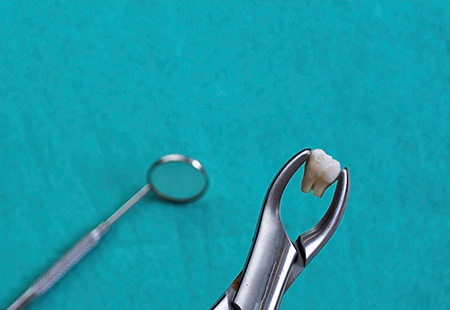
Extraction Procedure
What happens before an extraction? Your dentist will consult with you and discuss your specific situation. They will take a dental radiograph (x-ray) to determine the best treatment for you. If you need an extraction, it is important to let your dentist know what medications, vitamins, and supplements you are taking, as well as any health conditions for which you are being treated. If you are taking blood thinners, your dentist may need to talk with your cardiologist or primary care provider before your surgery, to ensure you are being treated safely. Your dentist may also prescribe antibiotics to start taking before and after your extraction.
What happens during an extraction? First, local anesthesia, or a numbing agent, is given so you are comfortable during the procedure. Using specialized instruments, your dentist completely removes the tooth, and the socket is thoroughly cleaned to ensure no infection is left behind. In some cases, bone graft material and L-PRF is placed in the socket to aid in the healing process. Your dentist may place sutures, or stitches over the area.


